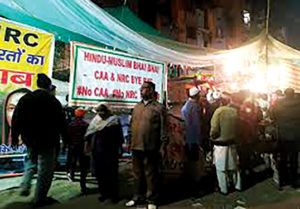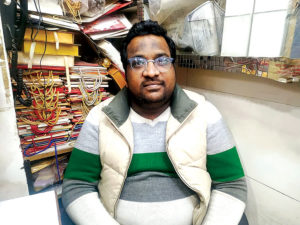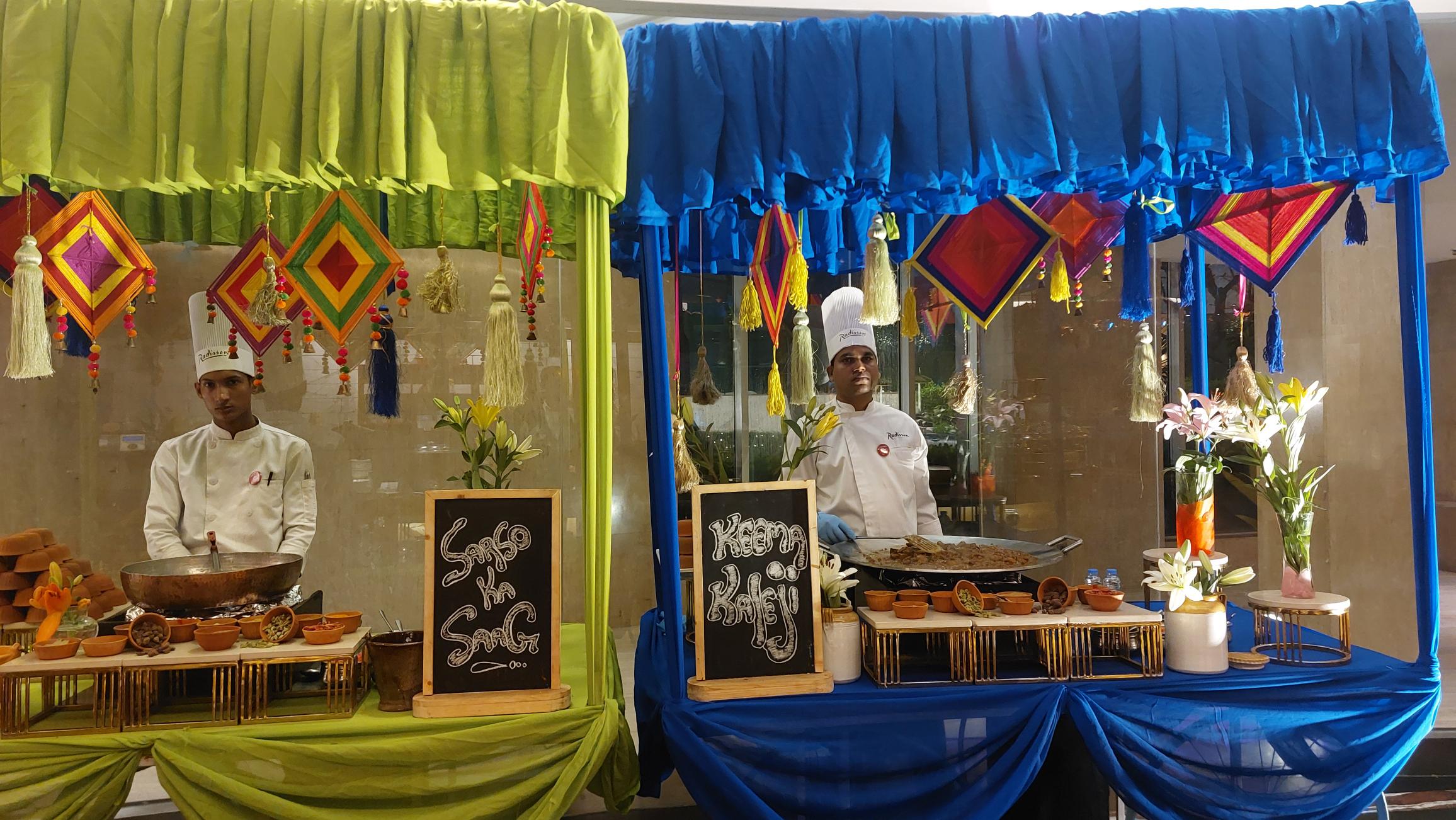AAP has kept the controversy surrounding the anti and pro CAA rhetoric at arms length, but why?
ON JANUARY 26, Amit Shah made a fresh pitch in his Bharatiya Janata Party’s campaign strategy for the impending Delhi election. Addressing the party’s social media volunteers at the Jawaharlal Nehru Stadium, the home minister raked up the ongoing Shaheen Bagh protest to hit out at his rivals.
“They are still saying they are with Shaheen Bagh. A video has surfaced today, watch it,” Shah said. “You have no shame saying you are with Shaheen Bagh? Your greed for votes has put blindfolds on your eyes.”
For over a month now, Shaheen Bagh has been the epicentre of resistance in the capital against the citizenship law and the feared National Register of Citizens. Led by women, the protest demonstration has been drawing thousands of people from across and outside the city on a daily basis. The same day Shah spoke at the Jawaharlal Nehru Stadium, a sea of people gathered in Shaheen Bagh to celebrate India’s 71st Republic Day.

While the Congress has publicly backed the protest, the governing Aam Aadmi Party has largely stayed away. The BJP, of course, has been railing against the protesters, with several of its leaders calling for their removal. Shah said as much. He urged Delhi’s voters to choose the BJP on polling day to send a message to Shaheen Bagh’s protesters. “On the morning of February 8, will you, along with your family, press the lotus symbol before 10 am?” he asked. “And friends, press the button so hard its current forces the protesters at Shaheen Bagh to leave the place by evening.”
The BJP’s scaremongering over Shaheen Bagh has emerged as a renewed strategy ahead of the election. While the BJP did talk about the citizenship law protests earlier, and even lashed out at AAP over last month’s violence in Jamia Nagar, the Hindutva party also questioned the incumbent on its governance record. Now, however, it seems to be focusing entirely on the protests against the citizenship law and the NRC.
How might this strategy work out in the 10 days until polling? Former AAP leader Ashutosh recently argued that by distancing itself from the issue, AAP had put the BJP on tricky turf.
Kejriwal has understood that his party can’t compete with the BJP on the turf of nationalism and Hindutva, Ashutosh wrote. Thus, he added, “It is better for AAP to highlight the performance of its government and emphasise what it has delivered in the last five years as also the fact that it has an achievable blueprint for the next five years.”
This is just what the party seems to have done. Kejriwal has repeatedly referred to the citizenship law and the NRC as unwanted distractions from the pressing matters of development and economic slowdown. Jasmine Shah, a member of AAP’s campaign team, echoed this view. “We are just trying to tell people what all we have done for Delhi’s development and growth in the last five years and what we will do in the next five. We are confident that they will primarily vote on the agenda of good work,” he said, adding that social media has played a key role in their campaign.
The strategy seems to have found some resonance. Anoushka Jain, a young professional from Janakpuri, said AAP had finally understood what successful political campaigning was all about. “Their social media content ensures the party’s message and policies instantly hit you without having to go through a tiresome manifesto.”
Like the BJP, the Congress has made the ongoing protests a key campaign issue. And like the BJP, the grand old party has made AAP its main target.
Subhash Chopra, the Delhi Congress chief, recently accused Kejriwal and his deputy, Manish Sisodia, of not showing “genuine support” to Shaheen Bagh’s protesters. “They are shedding crocodile tears for the Shaheen Bagh protesters with an eye on their votes in the Delhi assembly election,” Chopra said, responding to Sisodia’s expression of support for the protesters.
Stressing the contrast between his party and AAP on the issue, Chopra pointed out that chief ministers of states governed by the Congress had resolved not to implement the citizenship law.
Young voters such as Vignesh Singh, however, argued that state elections should be centred around local issues. “Time and again we have seen that linking national issues to state elections does not always help,” said Singh, a lawyer from East Delhi’s Kondli constituency. “Given AAP’s work, coupled with the new promises, I doubt linking the ongoing protests to the polls by other parties will swing the voters against AAP in any way.”

The media has focused mainly on Shaheen Bagh, but a few other areas in the city such as Jama Masjid and Seelampur have also been demonstrating over the past month and a half.
However, even in these areas, which are largely Muslim dominated, many voters Newslaundry spoke with said they would prioritise developmental work when they go out to cast their ballots. “I have voted for different parties in the past,” said Mohammad Haroon, a businessman in Shaheen Bagh, which falls in Okhla constituency. “But from my experience of the last five years, AAP seems to be the only party that’s genuinely committed to development.”
He has personally benefited from the AAP government’s scheme of free medical tests. “That, along with the work they have done in schools and in providing basic amenities such as power and water, compels me to support them again,” he added.
On AAP’s silence on the ongoing protests, Haroon said the party should have been more vocal. “But I think they have their political compulsions,” he argued. “That maybe why they have treaded cautiously.”
At Old Delhi’s Jama Masjid, another major site of protests against the citizenship law and the NRC which falls in Matia Mahal constituency, Abdul Hameed, a carpenter, echoed Haroon’s view. For him, AAP’s work put it ahead of all the other parties, he said. “We get free supply of water twice a day. They have also repaired and rebuilt roads in some congested parts of the constituency,” he added, sitting on the steps of the historic mosque and holding a placard with a slogan against the citizenship law. “New sewer lines and water lines have been laid in areas like Rohilla Pahari and Kala Mahal.”
Hameed argued that the ongoing movement against the citizenship law offered the Congress an opportunity to regain some lost ground, but the party “does not have any strength at the moment”. “And they have failed to project any credible leader in Delhi after Sheila Dikshit ji,” he added.
Nasimuddin, who owns a shop selling invitation cards in nearby Ballimaran constituency, agreed with Hameed. “Besides lacking a promising face in Delhi, the Congress, in contrast to AAP, is burdened with a corruption-ridden past,” he said. “So, even if they win some voters back because of the current protests, it would make no meaningful impact overall.”
In eastern and northeastern Delhi, the voters were not as dismissive of the grand old party as Nasimuddin. In Gandhi Nagar, where the Congress has fielded the veteran Arvinder Singh Lovely, several residents said AAP faced a tough contest.
Ajit Chand and Mohammad Nabisher, sitting outside their wholesale cloth shop in Taj Market, Gandhi Nagar, said the Congress stood a chance in the constituency this time. “Lovely is a known face among the voters. He also has the experience of serving in the government. So, he can’t be ruled out at the moment,” said Chand.
Nabisher argued that by tapping into the ongoing unrest, the Congress could make gains in their area, which has a sizeable Muslim population. “Despite AAP’s performance, the fact that the Congress has been more vocal on the issue will help them. Gandhi Nagar and Seelampur might go to them,” he predicted.
Younger voters in the area disagreed. Rumsha and Arshi, two students who regularly join the ongoing demonstration in Seelampur, said their religious identity would not decide their votes. “If one party tries to consolidate the Hindus, some other would do that with the Muslims. But our vote should go to the party that only focuses on work. Otherwise, how will there be an improvement in our material conditions?” asked Rumsha.
www.newslaundry.com





